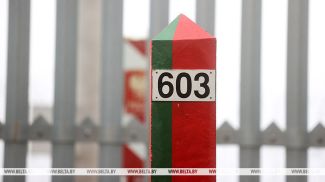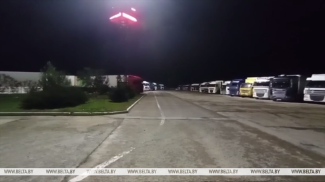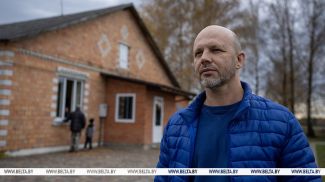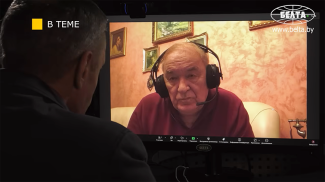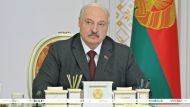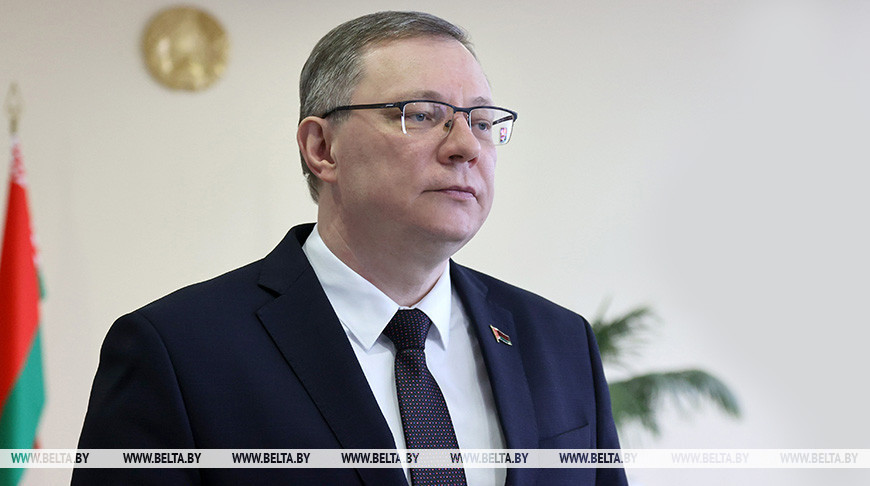
Andrei Shved. An archive photo
MINSK, 4 September (BelTA) – More persons convicted of extremist crimes may be pardoned in the future, Belarus’ Prosecutor General Andrei Shved told media on 4 September, BelTA has learned.
“Our commission [a special commission led by the prosecutor general is in charge of considering petitions of Belarusian citizens, who stay abroad and need to know whether they face charges in Belarus] is meeting next week to consider another set of petitions. There are quite a lot of them. We will study every person individually to form our opinion on whether it is possible to ask the head of state to pardon them,” Andrei Shved said.
He also named the conditions under which a person is highly unlikely to be pardoned. “If a person has committed violent crimes against law enforcers, committed violent acts related to causing harm to health, and everything related to the use of any violence, weapons and so on... Of course, with regard to these persons, I can say that we are unlikely to take a positive decision,” the prosecutor general explained.
As BelTA reported earlier, Belarusian President Aleksandr Lukashenko signed a decree on 4 September to pardon 30 persons, who had been convicted of protest-related crimes. Earlier, on 16 August, the head of state took a similar decision.
All persons submitted for pardon were studied by the citizen readmission commission headed by Prosecutor General Andrei Shved. All these persons have met the mandatory conditions for pardon - they filed a petition for pardon, admitted guilt, sincerely repented their deeds and promised to lead a law-abiding life.
According to the prosecutor general, the commission members, among whom are representatives of the government bodies, mass media and public associations, discussed each candidate separately. The commission meeting, which preceded the president’s decision on 4 September, had a very detailed discussion, Andrei Shved said. The vote was open. In some cases decisions in favor of the applicants were made by a margin of 1-2 votes, not more.
The commission made a decision to address the head of state with an appeal to pardon these people (we were talking about 30 persons). “The head of state, agreeing with the opinion of the commission members, adopted an act of pardon, guided by the principles of humanism. In fact, it is an act of goodwill,” the prosecutor general emphasized.
“Our commission [a special commission led by the prosecutor general is in charge of considering petitions of Belarusian citizens, who stay abroad and need to know whether they face charges in Belarus] is meeting next week to consider another set of petitions. There are quite a lot of them. We will study every person individually to form our opinion on whether it is possible to ask the head of state to pardon them,” Andrei Shved said.
He also named the conditions under which a person is highly unlikely to be pardoned. “If a person has committed violent crimes against law enforcers, committed violent acts related to causing harm to health, and everything related to the use of any violence, weapons and so on... Of course, with regard to these persons, I can say that we are unlikely to take a positive decision,” the prosecutor general explained.
As BelTA reported earlier, Belarusian President Aleksandr Lukashenko signed a decree on 4 September to pardon 30 persons, who had been convicted of protest-related crimes. Earlier, on 16 August, the head of state took a similar decision.
All persons submitted for pardon were studied by the citizen readmission commission headed by Prosecutor General Andrei Shved. All these persons have met the mandatory conditions for pardon - they filed a petition for pardon, admitted guilt, sincerely repented their deeds and promised to lead a law-abiding life.
According to the prosecutor general, the commission members, among whom are representatives of the government bodies, mass media and public associations, discussed each candidate separately. The commission meeting, which preceded the president’s decision on 4 September, had a very detailed discussion, Andrei Shved said. The vote was open. In some cases decisions in favor of the applicants were made by a margin of 1-2 votes, not more.
The commission made a decision to address the head of state with an appeal to pardon these people (we were talking about 30 persons). “The head of state, agreeing with the opinion of the commission members, adopted an act of pardon, guided by the principles of humanism. In fact, it is an act of goodwill,” the prosecutor general emphasized.




